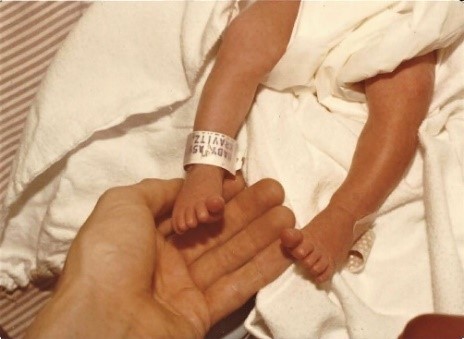
As a parent and grandparent, I see the birth of a child as miraculous.
In fact, the doctors gave one of my children a zero percent chance of surviving a pre-mature cesarean delivery. After intense prayer, he survived, and the staff of the hospital’s neonatal intensive care unit referred to him as the “miracle baby.” Today he has children of his own.
Our sages say there are three partners in the creation of a child, the mother, the father and God - who gives the soul (Niddah 31a).
This week’s Torah portion, Tazria, speaks about the circumstances of a woman giving birth and the offerings she presents to God in recognition of this momentous event.
Since this week’s parshah discusses childbirth, I would like to take this opportunity to respond to a comment I heard on a missionary video from Israel.
To validate their erroneous belief in a virgin birth these missionaries bring several sources in their attempt to demonstrate that the Hebrew word “Almah” means a “virgin” rather than a “young woman.”
I am currently preparing an in-depth response to all their arguments; however, in this post, I will respond to one point.
Israeli born "One for Israel" missionaries Eitan and Moti, incorrectly claim that Rabbi Moshe haDarshan, who lived in the 11th century, stated that “the Messiah will not have a father.”
A careful review of the Midrashic sources related to Rabbi Moshe's statement demonstrates that his comment was not meant to be understood literally. The approach of Midrashic commentaries tend to be more allegorical than literal.
Obviously, Rabbi Moshe believed that the Messiah will have a human father based on his comment in Bereishit Rabati - Genesis 49:15-16, that the Messiah’s father will be from the tribe of Judah and his mother will be from the tribe of Dan.
When Rabbi Moshe haDarshan mentions that the Messiah will be “fatherless,” he is quoting the words of Rabbi Berachia in a Midrash.
In another Midrash (Eichah Rabbah 5:3), Rabbi Berachia explains that being “fatherless” refers to an orphan. His proof is Queen Esther who was adopted by Mordechai as is says, "He brought up Esther, his uncle's daughter; for she had neither father nor mother" (Esther 2:7). Clearly, Esther had a physical father, Mordechai’s uncle, but having been orphaned, she is referred to as “fatherless.”
There are many reasons why the Messiah is referred to as a “fatherless orphan,” including the explanation of Rabbi Isaac Abarbanel (1437-1508), who teaches that the Messiah’s knowledge will surpass his predecessors in a way that we will not see him as a recipient of his wisdom/path in life from his father or teacher.
Working to achieve spiritual heights that surpass those of our ancestors is a goal we can and should strive for in our own lives.
Shabbat Shalom,
Rabbi Bentzion Kravitz